Your nourished morning just got a little easier!
Everybody loves waffles but not everybody does well on conventional waffle recipes. If you are passionate about proper grain preparation you will love this recipe for sourdough and sprouted whole wheat waffles.
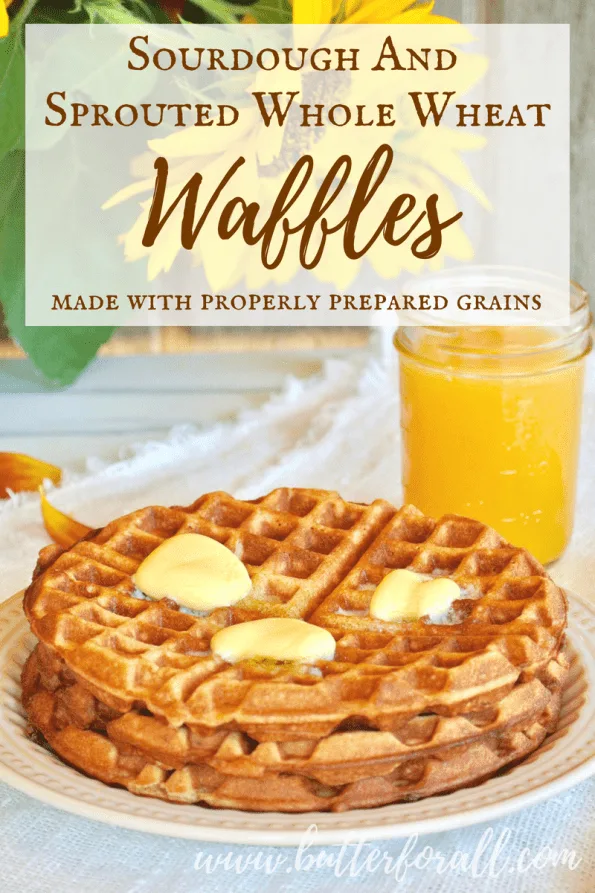
Traditional sourdough waffles are really lovely, but they require a bit of planning as the batter is typically started the night before. I don’t know about you, but I’m not always that organized! With this recipe that uses sprouted whole wheat flour, you can use sourdough starter discard straight from the refrigerator moments before cooking your waffles.
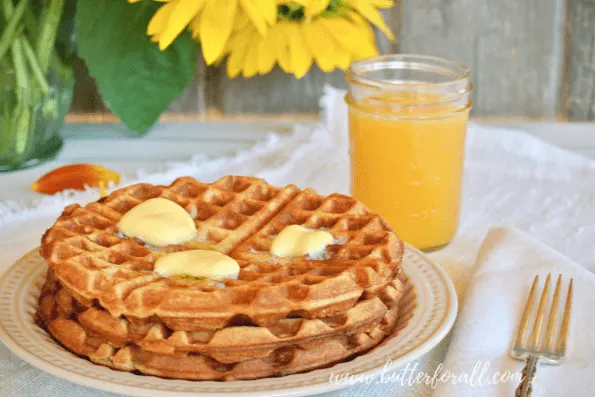
Sourdough and Sprouted Whole Wheat Health Benefits
Souring Grains
Souring grains, as is done in the sourdough process, has many health benefits ranging from improved digestibility to increasing nutrients and decreasing phytic acid. Grains that have been soured are nutritionally far superior to fresh grains.
Sprouted Wheat Flour
Sprouting wheat is another way of transforming the nutrient-blocking phytic acid in grains and creating easily digestible enzymes. Sprouting also increases vitamin C, B vitamins, and carotene. But the really great thing about sprouted wheat flour is it is dry flour and can be used in recipes without further processing!
Find my favorite sprouted wheat flours here.
The following recipe combines fully fermented sourdough starter with sprouted whole wheat for a nourishing and properly prepared meal!
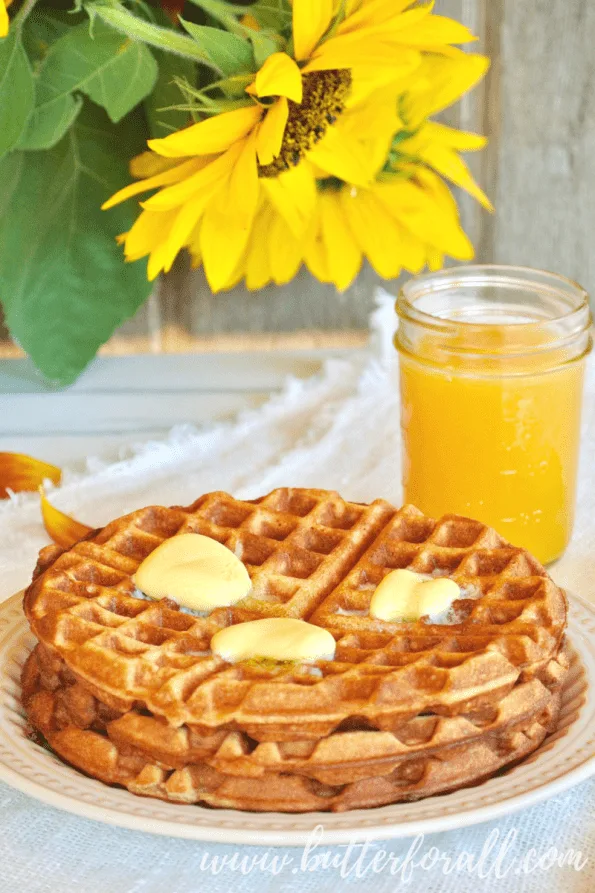
This cast iron waffle iron may be the most beautiful waffle iron ever! I’m swooning over it!
These whole wheat waffles are the perfect way to use sourdough starter discard for a quick and easy nourishing breakfast.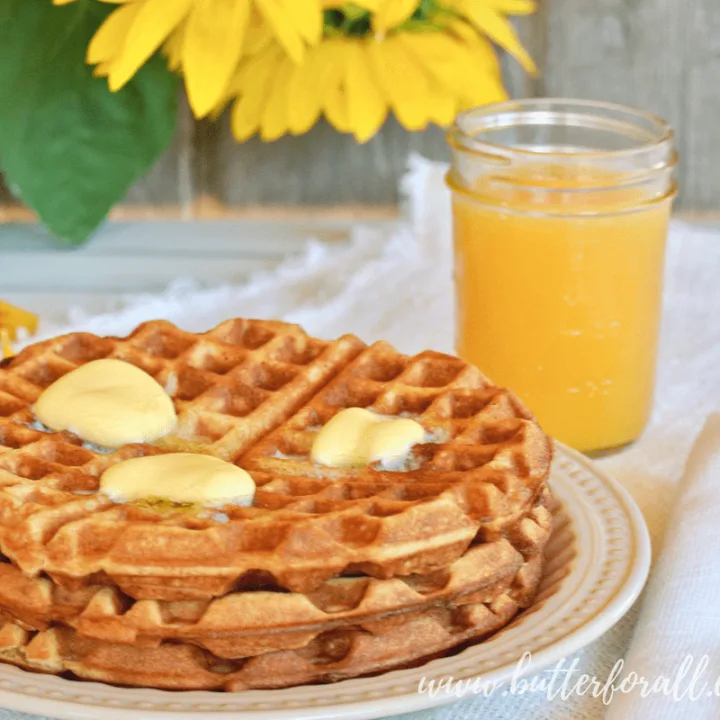
Sourdough and Sprouted Whole Wheat Waffles
Ingredients
Instructions
Nutrition Information:
Yield: 4
Serving Size: 1 grams
Amount Per Serving:
Unsaturated Fat: 0g
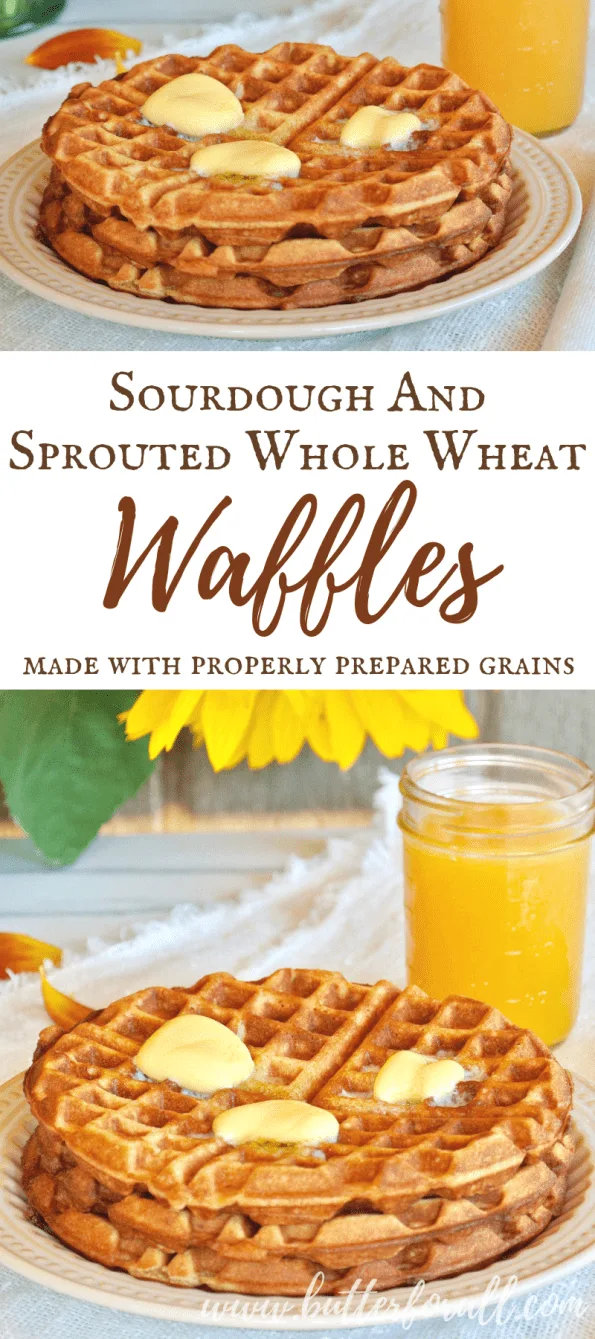
Want To Learn Everything About Sourdough?
Start with this free guide:
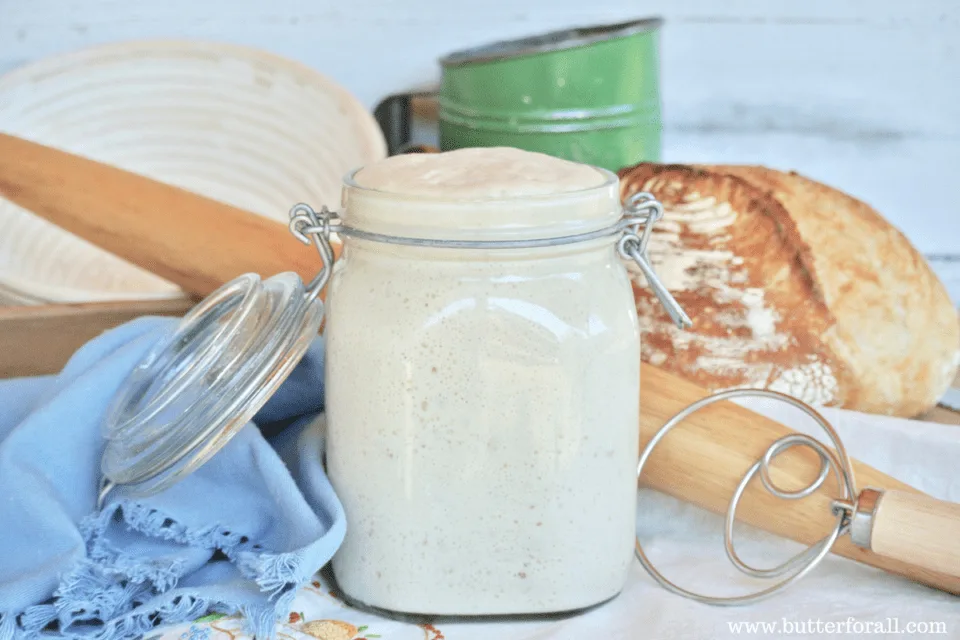


Guna
Friday 28th of May 2021
I have tried making pancakes with sourdough starter discard but they alwaus taste like sourdough bread..do these waffles taste sourdoughish?
Butter For All
Saturday 29th of May 2021
Hi Guna.
The strength of the sour flavor really depends on your starter. If you feed it often to encourage yeast production then the starter will rise faster and with less bacterial action. The bacteria make the lactic acid that contributes to the sour flavor. So if you use old discard, that hasn't been feed recently, you will always have a sour product. With that said, this recipe is less sour because the sprouted grains don't require extra fermentation.
I think you will like them, especially if you use fresh starter!
Happy Baking, Courtney
Donna
Tuesday 16th of July 2019
I just discovered your website and I can't pull myself away. I've been making my own sourdough bread for about 3 years, after getting my own starter going from plain flour and water. This process amazes me. I have been making pancakes and waffles with a recipe that uses unfed starter and other ingredients that are mixed and left overnight. I am wondering if the one with extra fermentation is better than this as far as benefits.
Butter For All
Friday 19th of July 2019
Donna,
What a nice compliment, thank you!
Sourdough is a wonderful experiment and it never ceases to amaze me as well.
The longer your dough or batter ferments the easier it will be to digest. In this recipe I'm using a combo of sourdough and sprouted grains, the sprouted grains are similar to sourdough as far as having phytic acid neutralized but have the added benefit of the whole grain. This mix can be fermented longer if desired. But the whole reason I wrote this recipe was to be able to mix a batter in the morning without needing more fermentation, hence the sprouted wheat! I hope that answers your question!
Looking forward to more sourdough conversation,
Courtney
Allison Keyte
Sunday 18th of November 2018
Are you referring to unfed starter when you say starter discard. Could you elaborate on 100% hydration. Sorry to be ignorant to this. Allison
Butter For All
Sunday 18th of November 2018
Hi Allison,
This is NOT ignorant at all! These are great questions.
Yes, sourdough discard is unfed sourdough starter straight from the refrigerator. I use my starter frequently enough that the starter is not separated and is usually still slightly bubbly from the fridge. If it has been a long time since you used your starter and it has separated and is super sour, you might want to discard and feed it before using it in this recipe. If you do feed it, make sure you give the starter plenty of time to ferment prior to using. What makes this recipe special is it can be mixed up and used right away instead of needing additional fermentation time!
100% hydration means you have been feeding your starter with equal weight flour and water. If you feed 100g of flour your would use 100g of water and mix this into a thick starter batter. Keeping your starter at 100% hydration allows you to be more consistent with recipes and you will find that all my more recent recipes call for starter that is 100% hydration. You can find a lot more info in my guide Demystifying Sourdough.
I hope this helps! Feel free to reach out if you have more questions!
-Courtney